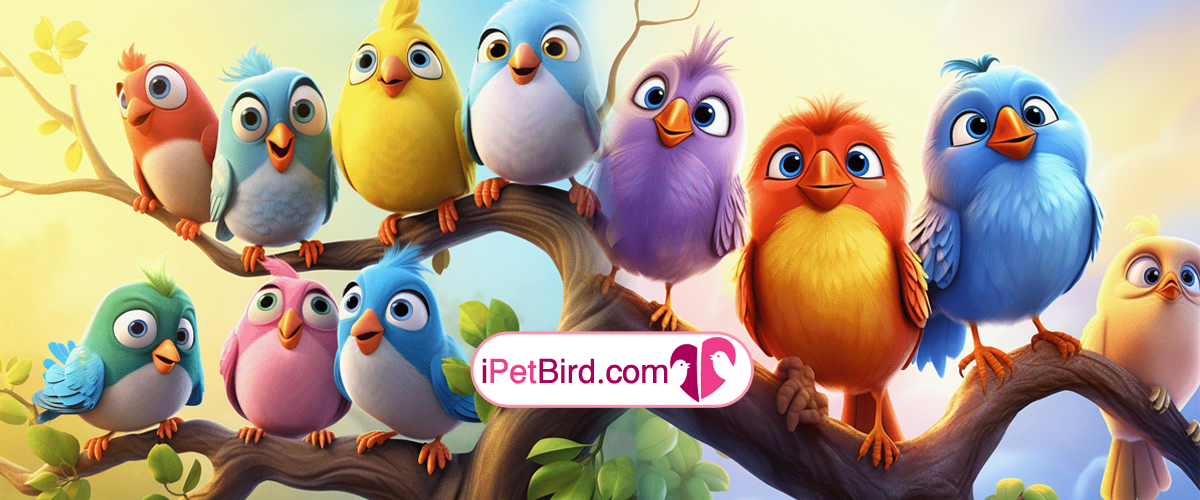10 Foods That Can Poison Birds

Birds are social creatures, so many pet bird owners allow their birds to share food with them. Although sharing food with your birds is a lot of fun and can be great for the health of your pet birds, there are many common human foods that can… They can be harmful or even fatal to birds, and owners need to know which foods birds will share with you and which pose a significant risk.
Chocolate is a wonderful treat when you share it with your human family members, but it can be harmful or fatal to pet birds. Chocolate poisoning first affects the bird’s digestive system, causing vomiting and diarrhea. As the condition progresses, the bird’s central nervous system is affected, causing seizures. And in the end death.
2- Apple seeds:
Apples, along with other members of the rose family including cherries, peaches, apricots, and pears, contain trace amounts of cyanide within their seeds. Although apple fruits are good for your pet birds, be aware that in addition to the toxic seeds, there may be pesticides found on the skin. Fruit can poison birds. All pieces of apple that you will share with your birds must be thoroughly cleaned so that the birds avoid exposure to these toxins.
3- Salt:
Although all living organisms need regulated amounts of sodium in their systems, too much salt can lead to a range of health problems in birds, including excessive thirst, dehydration, and impaired kidney function, and can even lead to death. Monitor the number of salty foods your birds eat.
4- Avocado:
The skin and seeds of this popular avocado fruit are known to cause cardiac distress and eventually heart failure in pet bird species, and although there is some controversy about the degree of toxicity of avocados, it is generally recommended to keep avocados and other avocado products away from pet birds if possible.
5- Mushroom:
Mushrooms are a type of fungus that have been known to cause digestive upset in pet birds. The caps and stems of some mushrooms can induce liver failure, so you should not let your pet birds eat raw or cooked mushrooms.
Read also: 6 Questions To Ask Before Raising Pet Birds
6- Tomato leaves:
Tomatoes, like potatoes and other gooseberries, are a delicious fruit that is good for birds to eat. However, the stems, vines and leaves are highly toxic to pet birds. When providing tomatoes as food to your birds, make sure they have been cleaned properly. Cut them into slices, removing the green parts so that your birds avoid exposure to toxins. Due to their high acidity content, tomatoes are not the best choice, and there are many other vegetables that you can offer to your birds.
7- Caffeine:
Caffeinated drinks such as soda, coffee, and tea are popular among people, but allowing your pet birds to indulge in these drinks can be very dangerous. Caffeine causes heart dysfunction in birds and this is associated with increased heart rate, irregular heartbeat, hyperactivity, and stroke. Hearty Alternatively, share a healthy drink of pure fruit, vegetable juice or fresh juice with your bird, this will satisfy your bird’s sense of taste and nutritional requirements.
8- Onions:
While limited amounts of onion or garlic powders as flavorings are generally acceptable, excessive consumption of onions causes vomiting, diarrhea, and a host of other digestive problems in pet birds, and it has been found that eating onions for long periods can lead to a blood problem called Hemolytic anemia, followed by shortness of breath and eventual death of pet birds.
9- Dried beans:
Cooked beans are a favorite food for many birds, but dry and sour beans can be very harmful to your pet birds. Uncooked beans contain a toxin called hemagglutinin, which is very toxic to birds. To avoid exposure to this poisoning, any type of beans or legumes in general should be cooked. Choose it when you want your bird to share with you, and avoid leaving dried beans in an easily accessible place.
10- Fatty foods:
Human consumption of high-fat foods such as butter, oils, fatty meats, and nuts can lead to the buildup of cholesterol deposits in the arteries (atherosclerosis), predisposing us to heart disease and stroke. Consumption of these foods can also lead to obesity. The same processes occur in birds, and some species. Birds such as Amazon parrots and Quakers are susceptible to developing high levels of cholesterol and triglycerides and subsequent coronary artery disease, so just as we should limit the consumption of high-fat foods in our diets, so should birds.
Read also: Here Are The 10 Most Important Tips For Taking Care Of A Parrot

















